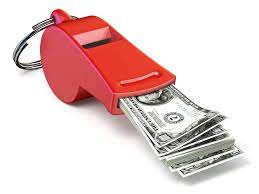SEC Modifies Whistleblower Regulations

The SEC has a long list of priorities and a full agenda. One issue on its list was to address changes needed to the SEC’s whistleblower program.
The SEC’s whistleblower program has been a success. It was adopted as part of the Dodd-Frank Act in 2010. Since then, it has resulted in significant enforcement actions and large payouts to whistleblowers. Like any other program, the SEC’s whistleblower has generated controversy over whistleblower incentives, consistent treatment and fairness to whistleblower complaints.
In total, the SEC has secured over $5 billion in penalties from securities law violators, and returned almost $1.3 billion to investor victims. Whistleblowers have earned approximately $1.3 billion in compensation. Under any vantage, the government has benefited from the program and it has been an important tool in the SEC’s enforcement arsenal.

The SEC adopted two important amendments to the whistleblower regulations.
The first expands the circumstances under which a whistleblower may be rewarded in a related action by the SEC even though the SEC may have assisted another agency and received compensation from that separate regulatory agency. In other words, if the SEC whistleblower assisted in a related action brought by the CFTC, for example, the SEC may compensate the whistleblower for that assistance in addition to the CFTC’s payout of compensation under its own program.
In the second amendment, the SEC revised its regulations to afford itself increased discretion to consider and adjust the dollar amount of a potential reward payment. To be clear with whistleblowers, the SEC’s regulations were modified to permit consideration of the proposed size of the award solely to increase the amount of the award, but not to decrease the size of the award.
Two SEC Commissioners voted against the amendments claiming that the changes adopted were solutions that were in search of a relevant problem. Specifically, the opponents noted that the “Multiple-Recovery Rule”, if in effect since 2010, would have increased payouts by only $10.5 million. In the context of a $1.5 billion program, an increase of $10.5 million would not have so significant an impact on whistleblower incentives.

These same two Commissioners also noted that restricting discretion of the SEC to reduce financial rewards would be unlikely to increase appreciably the incentive for filing of whistleblower complaints. The two Commissioners cited the absence of any record evidence before the Commission to support such a conclusion.
The whistleblower bar supported the regulatory changes as needed improvements to support whistleblower decisions to report securities violations. The opponents to the changes cited the complexity of the existing regulations and the impact that the new changes would have on promoting clear and concise regulatory guidance for potential whistleblowers.
















1 Response
[…] Source link […]